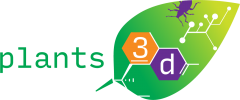Design Tournament
The dates for 2024 will be announced during the spring or summer of 2024.
Day 1 – Organizational Meeting
Round 1 – Students pitch their startup concepts in 2 minutes. Half of the concepts proceed to Round 2, where students team up in pairs.
Round 2 – Pairs will pitch an evolved concept. Again, half of these are to grow and develop the most competitive ideas. Teams of four work together to form a start-up.
Round 3 – A panel of experts will judge team presentations, and the winning team will be awarded $5,000 to spend on materials/supplies to develop a proof-of-concept.
The Design Tournament enables students to develop and evolve collaborative and entrepreneurial ideas in a multi-stage competition for a $5000 prize. The goals are to:
• Develop a design solution with IP potential and start–up potential
• Work with an interdisciplinary team to develop the product concept
• Receive R&D funding and mentoring to support the concept beyond the tournament
Our Annual Retreat
Trainees will be introduced to concepts of convergent and translational research during a two-day, off campus early each fall Retreat.
We will start with a keynote lecture on campus, followed by a retreat from Friday evening to Sunday lunch at the UCLA Lake Arrowhead Conference Center. Typically, a Keynote Lecture is on campus, so that the entire community can benefit.
Friday night highlights a “mentoring” speaker selected through student involvement. Saturday morning sessions involve formal presentations by students, faculty, or guests (i.e., an Advisory Board member, invited speaker or end-user). Saturday late afternoon and evening will be devoted to an interactive activity that engages all participants. The activity is modeled after a DARPA challenge and adapted to our program by Ian Wheeldon and Sean Cutler.
Aided by presentations, posters, and refreshments, partnerships are formed to develop “translational or educational collaborations.” On Sunday morning, partners present a two-minute (one-slide) Lightening Talk on their collaborative concepts. This retreat activity has seeded collaborations as well as the Ideas Exercise we use in our Design and Entrepreneurship Course.
Each year, some ideas are focused on education, for example research modules for the Dynamic Genome Freshman Biology Lab, led by James Burnette and brainchild of Susan Wessler.
Seminars
Plants3D hosts speakers each quarter. These talks are placed into existing seminar series, such as the IIGB/CEPCEB Friday noon seminar series. Trainees will interact and host speakers.
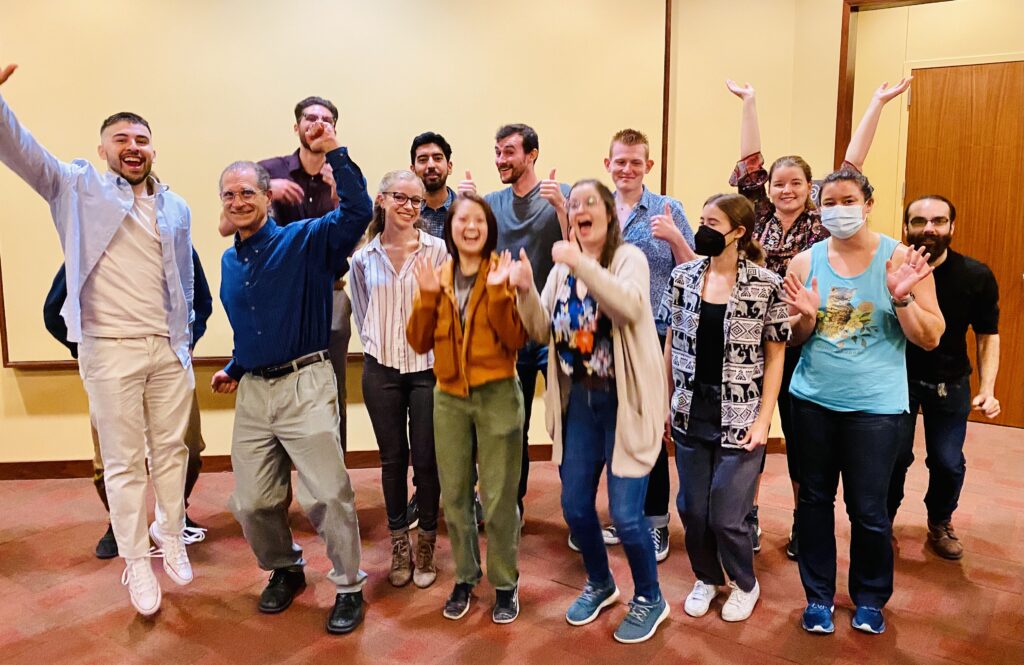
Our seminars are often a hybrid virtual/in-person format.
Future Annual Retreat dates
Tentative Future dates:
2024: November 15th-17th
2025: November 14th-16th
Past Retreats
2023 Retreat Highlights
Before the retreat, Professor Robert Jinkerson, a chemical engineer, led our 4th annual Plants3D Design Tournament. This friendly competition encourages entrepreneurship, collaboration, and communication skills. Four teams presented their final ideas, and after evaluation, the Sweet Heat Team was selected for seed funding. Their aim is to address the issue of lettuce bolting at temperatures above 75F by mutating the promoters of three genes in lettuce: CO, FT, and SOC1. These genes are involved in the transition from growth to bolting. The team members include Rachel Strout and Haley Larsen, both plant biologists, and Benjamin van Raalte, an entomologist.
There were two guest speakers at the Retreat:
- Science Communication trainer and freelancer Menaka Wilhelm from the DOE JGI hosted two workshops for the students. The science communication workshops helped students practice communicating their research to various audiences. They helped them to think of new ways to communicate using different formats: for a child, for a peer, as a meme, and for an infomercial.
- Chris Dundas, a synthetic biologist from Stanford University presented a talk titled “Transkingdom Metabolic Engineering of Root-Microbe Sucrose Exchange”.
The retreat off campus is surrounded by stunning fall foliage and the deep blues of Lake Arrowhead. Check out the Retreat Program 2023. Many highlight the opportunity to interact with students from other Plants3d cohorts and faculty.
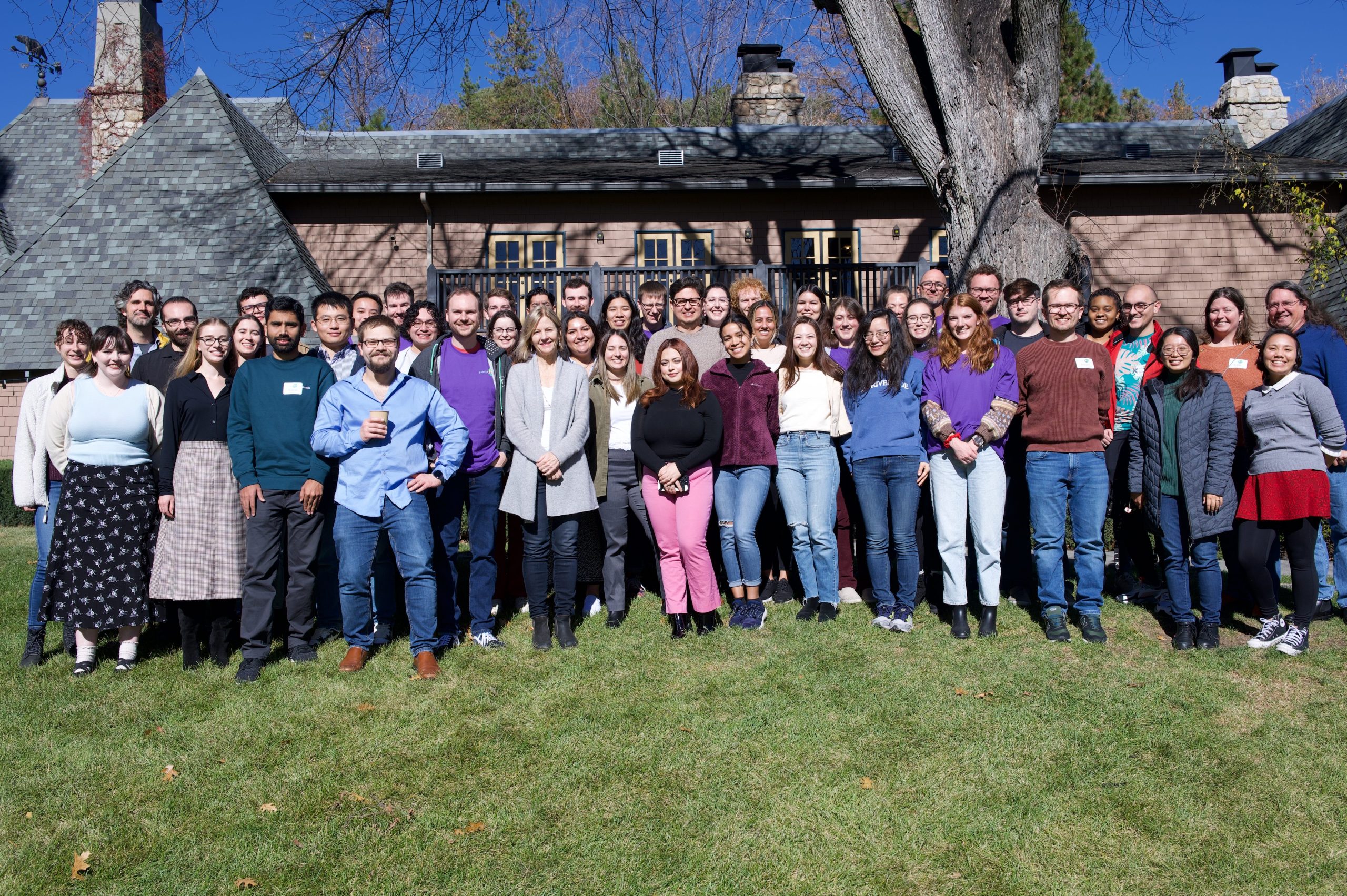
2022 Retreat Highlights
Preceding the retreat, Prof. Dave Nelson (Plant Biologist) and Prof. Yanran Li (Chemical Engineer) led our 3rd annual Plants3D Design Tournament. Announced in September, this event was widely advertised to graduate students. In a series of three rounds of competition, individuals (round 1), pairs (round 2) and teams (final round), formulate a collaborative project for seed funding. The friendly competition stimulates entrepreneurship, collaboration, and hones communication skills.
The final round of our 3rd Plants3D Design Tournament was presented by 3 teams. The projects were all highly competitive. After evaluation by all present, the Superwomen Saffron team was selected for seed funding. The team aims to develop a new varietal of Crocus sativus. Team members: Taryn Dunivant (Plant Biologist), Eva Ottum (Chemical Engineer), Sabrina Gilmour (Plant Biologist) and Jessica Ho-Woods (Microbiologist).
Our keynote speaker on Friday was metabolomicist Nigel Mouncey, Director of the DOE’s Joint Genomes Research Institute at the Lawrence Berkeley National Lab. The talk, “New keys to unlock the treasure trove of microbial natural products”, described a highly collaborative experimental platform for discovery and study of underexplored natural products (secondary metabolites): from microbes, to mollusks, and plants. The talk was via Zoom to increase participation across campus.
The retreat off campus, surrounded by gorgeous fall colors and the deep blues of Lake Arrowhead. Check out the Retreat Program 2022. A highlight for many was the interactive activity. that included 19 pitches, each followed by many questions from the audience.
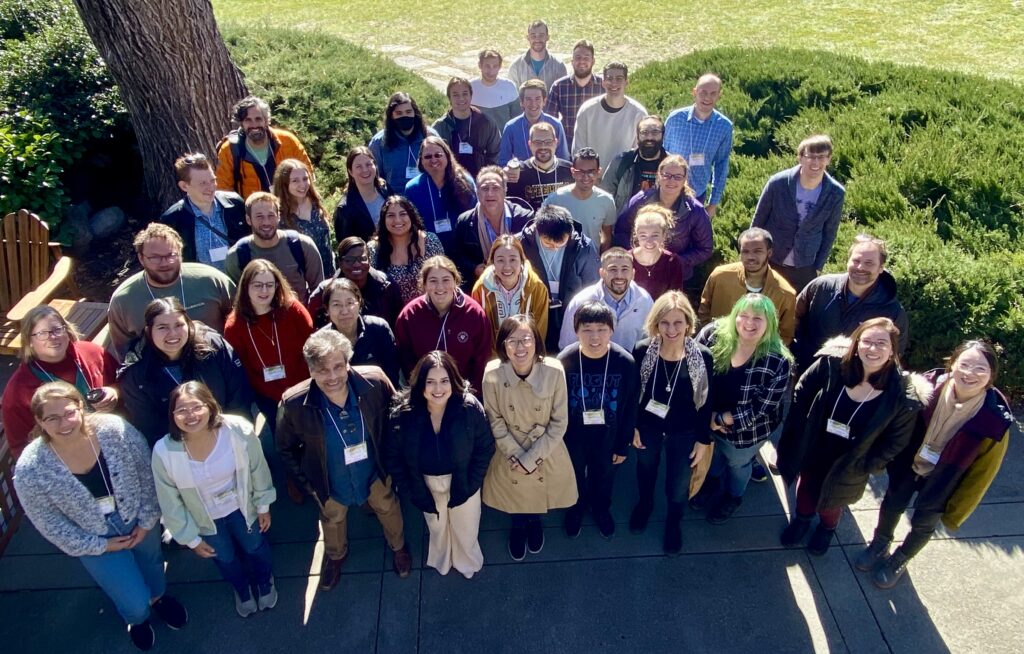
2021 Retreat Highlights
The 2021 retreat took place at Lake Arrowhead from November November 19th to 21st.
Day 1: Over 200 campus members participated in a highly interactive Zoom lecture by visionary and engaging plant synthetic biologist Jennifer Nemhauser (U of WA), who described transferring plant signaling circuitry into yeast and animals and highlighted effective online teaching and inclusion strategies.
Later, at the in-person Lake Arrowhead Retreat, we continued our practice of a Lightening Talk event based on ideas developed within a few hours by pairs of participants. Stimulated by Nemhauser’s presentation, three of the 19 teams pitched undergraduate teaching ideas: an app addressing science literacy and vaccine hesitancy, an authentic research project on the “navel” of oranges, and the “Ag 4.0 Shinyapp” for the design of new crops, such as for vertical farming. These and the 16 interdisciplinary research projects presented with a single slide were inspiring. Another retreat highlight was the final presentations 2nd annual Plants3D Design Tournament. This was organized and improved from year 1 by Prof. Robert Jinkerson (Chemical Engineer). The winning team of chemical engineers and a biologist proposes to synthesize a cinamyl plant secondary metabolite in a yeast.
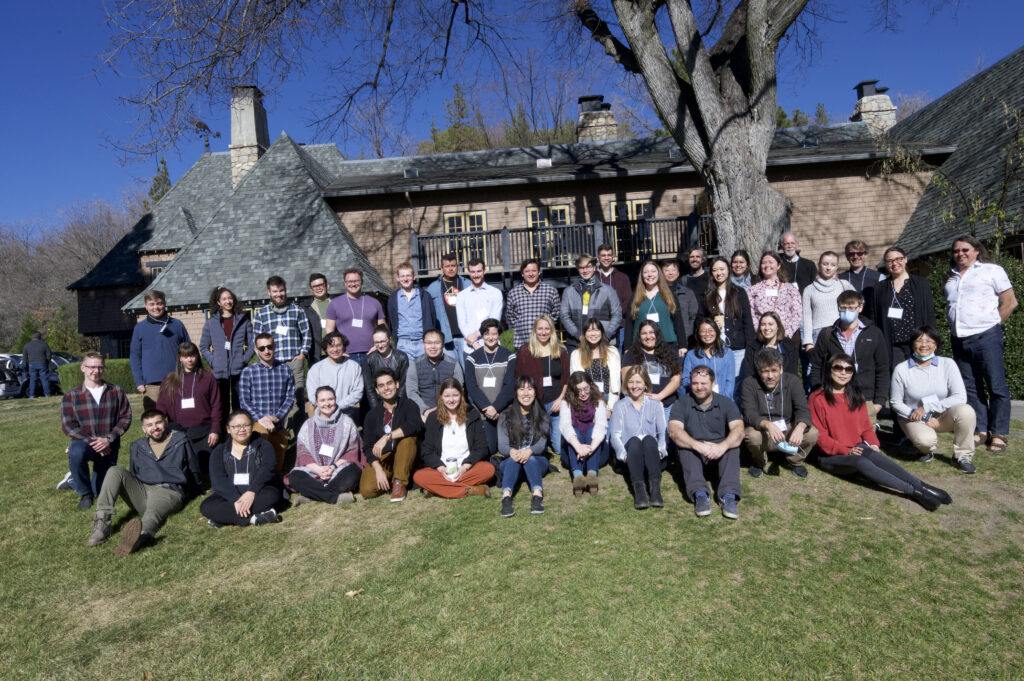
Check out the video from the 2021 Design Tournament Team lead:
2020 Retreat Highlights
The 2020 Retreat took place virtually on November 13th-14th.
Click here for the 2020 Retreat Program.
The Final Round of our Design Competition was presented by 3 teams. After evaluation by outside judges, 3 projects were funded. In total 17 trainees and 7 faculty were engaged in this tournament.
The keynote talk by synthetic biologist Jay Keasling from UC Berkeley provided inspiration on how engineered microbes can be used for the production of isoprenoid natural and unnatural products. Matt Begemann from Benson Hill and Weslee Glenn from Provivi joined to share and answer questions about their careers in synthetic biology and plant biotechnology.
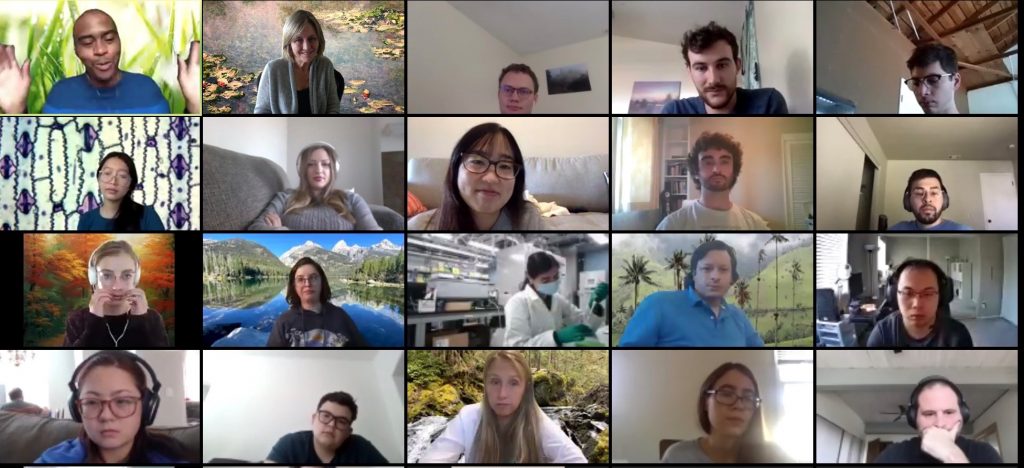
2019 Retreat Highlights
The 2019 Retreat took place from November 15th to November 17th at the UCLA Lake Arrowhead Conference Center.
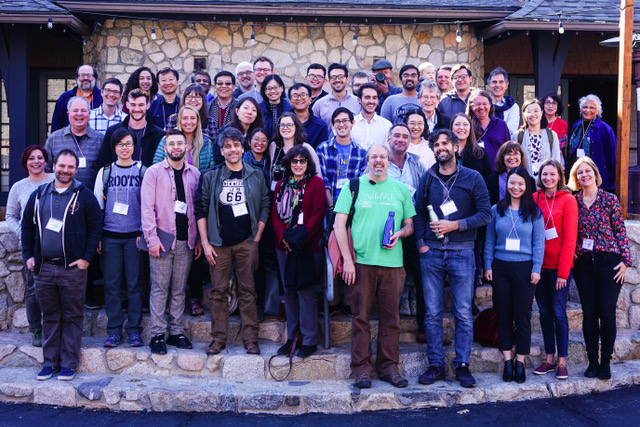
Some highlights were the Lightning Talks from 19 pairs of students and faculty in plant and microbial synthetic biology. Projects ranged from enhancing beneficial plant-microbe relationships to the synthesis of metabolites of citrus in yeast.
The keynote talk by environmental synthetic biologist Joff Silberg from Rice University provided inspiration on microbial sensors for monitoring soils and possibly also plant health.
2019 Retreat Program and Photo Gallery (by Thomas Girke).
